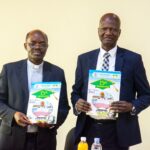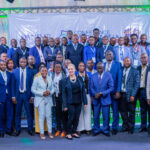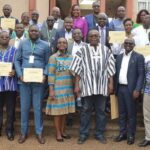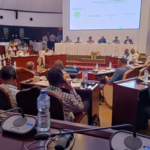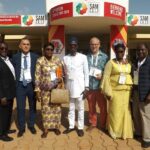
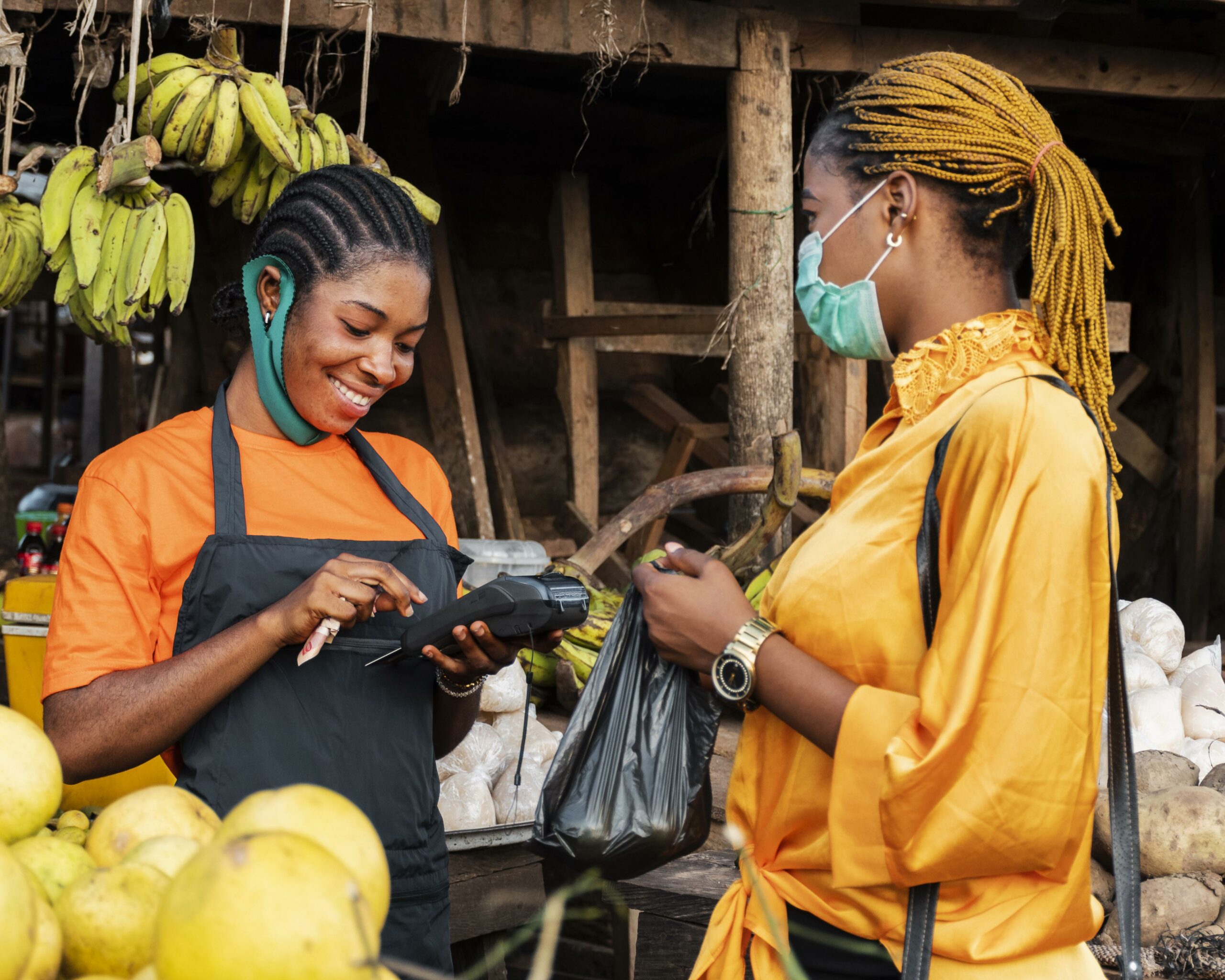
To address growing social challenges, the Social and Solidarity Economy (SSE) is emerging as an economic alternative focused on people, solidarity, and social utility. Microfinance, created to fight financial exclusion, at first glance shares many values with the SSE. But can it fully embrace it? To do so, it must respect the three fundamental principles of this model.
Since its beginning, microfinance has sought to provide financial services to those traditionally excluded: low-income people, women, youth, and rural populations. It supports economic empowerment and social inclusion through products such as credit, savings, and insurance. This social goal, at the heart of its mission, corresponds to the first principle of the SSE: pursuing a socially useful purpose rather than the pursuit of profit.
But the SSE also requires democratic and participatory governance, where decisions are made collectively, with the involvement of beneficiaries. Some MFIs, particularly cooperatives, already operate on this model. Others still need to progress towards greater transparency and participation to align their governance methods with this second principle.
Finally, limited profitability is the third essential principle. It means that financial surpluses are reinvested in the service of the social mission, and not redistributed to shareholders. Any MFI involved in the social and solidarity economy must therefore place its economic viability at the service of human development, rather than financial profitability.
These three principles—social purpose, democratic governance, and limited profitability—form a clear framework. They allow us to assess whether a microfinance institution is acting as an actor in the solidarity economy, or whether it is straying from this vocation. These are not just intentions, but concrete, visible, and measurable practices.
This is why a call is being made to MFIs: to fully integrate the values of the SSE, not only in their statements, but also in their daily operations. By doing so, they strengthen their social mission, their legitimacy, and their impact on the communities they serve. MAIN strongly encourages this dynamic, convinced that microfinance rooted in the SSE is stronger, more responsible, and better equipped to meet the challenges of sustainable development.
During the National Microfinance Week (SeNaMif) in Benin, from September 22 to 25, 2025, several panels highlighted crucial issues for the sustainability of Microfinance Institutions (MFIs). Among these, liquidity risk was at the heart of the discussions and was moderated by Mr. Isaac Nuako, expert on this module. Far from being a simple question of cash flow or compliance, liquidity is above all a strategic issue that affects the very future of institutions. Many participants took part in this session.

Liquidity risk, often wrongly perceived as a simple question of cash flow or regulatory compliance, must today be understood as a major strategic issue, directly linked to the fragility of decisions taken in a context of uncertainty.
Traditionally, it is defined as an institution’s ability to meet its short-term cash commitments. True liquidity risk lies in the inability to finance key decisions when the basic assumptions on which the institution’s operations are based cease to be valid.
Liquidity management must shift from a passive monitoring approach to a proactive approach based on anticipation, scenario simulation, and regular review of assumptions. Lack of liquidity is not limited to a shortage of cash; it primarily translates into a loss of strategic flexibility: the inability to grant credit, pay salaries or suppliers on time, support vulnerable clients, or invest in growth. It is when decisions become constrained and reactive that the mission of microfinance institutions is most threatened.
Effective liquidity risk management relies on a detailed understanding of the timing of cash inflows and outflows, the level of confidence in these flows, and the sensitivity of decisions to these uncertainties. The central question should no longer be “do we have enough liquidity?”, but rather “on what decisions do future cash flows depend?”, “what would happen if these flows were delayed?”, or “what assumptions should we reconsider?”. Liquidity must be integrated into the core of governance, where boards and management regularly review key risk-bearing assumptions.
The session emphasized several practical recommendations: the adoption of scenario-based forecasts (best case, probable case, worst case) with weekly monitoring of deviations, the development of decision-oriented indicators such as, or decision triggers based on alert thresholds. It is also necessary to design products and loan cycles in line with available liquidity, avoid incurring fixed expenses on uncertain inputs, and regularly simulate stress tests to prepare decisions in real situations.
In conclusion, liquidity risk in microfinance should no longer be seen as a simple financial indicator or a one-off cash flow problem. It constitutes a key strategic issue, requiring a proactive and resilient approach in the context of fluctuating economic conditions. MAIN is committed to continuing its awareness-raising and support efforts to help microfinance institutions integrate this decision-making view of risk and strengthen their sustainability in a complex and changing environment.
From September 22 to 25, 2025, Cotonou Convention Center hosted a continental event: the National Microfinance Week (SeNaMif), under the theme ” Inclusive finance in Africa in the context of climate and security challenges.” This edition, organized under the high patronage of the Government of Benin through the Ministry of Social Affairs and Microfinance, marked the return of this strategic event in a global context profoundly transformed by economic shifts, environmental crises, and human security challenges. For four days, more than 300 participants from twenty African countries gathered in Cotonou to discuss, exchange ideas, and propose concrete solutions to strengthen the resilience of microfinance institutions and ensure equitable access to financial services for vulnerable populations. The event also aimed to foster dialogue between public and private stakeholders, promote best practices in governance and financial innovation, and formulate action plans for sustainable and responsible financial inclusion to support the socio-economic development of the continent.
The opening ceremony, chaired by Mrs. Véronique TOGNIFODE, Minister of Social Affairs and Microfinance, and attended by several members of the government and institutional representatives, set the tone for an intense and inspiring week. In a very crowded hall, the Minister emphasized the special significance of this edition, which marks the return of a forum for reflection and dialogue dedicated to inclusive development. She highlighted the central role of microfinance in Benin’s development policy, which has successfully built a structured, efficient, and regulated sector that benefits entrepreneurs, women, and young people.
The Minister also emphasized the need to adapt inclusive finance to the new challenges of our time: the climate emergency, rapid digitalization, territorial security, and social stability. She invited stakeholders to consider new instruments, strengthen South-South partnerships, and promote innovations that foster greener, more inclusive, and more resilient finance. Similarly, the speeches by the Managing Director of Microfinance, the Chair of the Board of Directors of APSFD Benin, the President of MAIN, and the Chargé d’Affaires of the Grand-Duché of Luxembourg all converged on a message of hope and collective responsibility: to make microfinance a powerful lever for sustainable development and social inclusion.
SeNaMif 2025 then extended through a rich program, structured around plenary sessions, thematic workshops, expert panels, and networking activities. Discussions explored diverse themes such as climate finance and green finance, governance and transparency in microfinance institutions (MFIs), digitalization and technological transformation, and risk management in an uncertain economic context. Participants shared concrete experiences, resilience models, and innovative practices from across the African continent, highlighting the sector’s vitality and creativity.
Beyond the technical discussions, SeNaMif was also a time for human connection and intercultural exchange. A day of immersion in Ouidah allowed the foreign delegations to discover the historical and cultural roots of Benin through visits to the Gate of No Return, the Temple of Pythons, and Tcha Tcha Square. This relaxing experience helped strengthen bonds of friendship and cooperation among participants, in an atmosphere of African unity.
The highpoint of the week was certainly the gala evening on September 24th, organized in honor of the 30th anniversary of MAIN. This celebration brought together founding members, technical and financial partners, and several representatives from member institutions. In a warm atmosphere, combined by artistic performances and moving testimonials, the network retraced its journey since 1995, celebrating the progress made and the challenges ahead. Thirty years of commitment, solidarity, and innovation in service of African microfinance were celebrated with pride, reaffirming the relevance of MAIN’s founding vision: to build a pan-African network of strong, autonomous, and interconnected institutions.
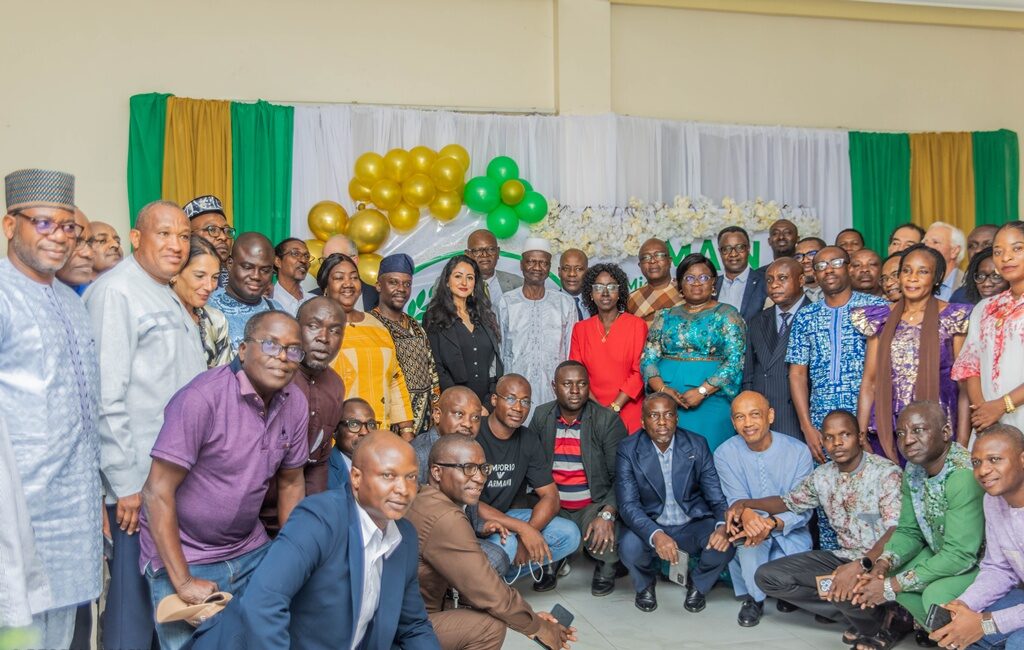
The closing ceremony of SeNaMif, chaired by Mr. Brice Russel Dansou, Managing Director of Microfinance, representing the Minister, marked the end of the proceedings on a note of hope and commitment. Surrounded by the President of APSFD Benin, the outgoing President of MAIN, and the newly elected President, he praised the resonant success of this edition, both in terms of participation and the quality of discussions. In his closing remarks, he emphasized the need to build on the results and maintain the momentum, by positioning resilience, innovation, and sustainability at the heart of the national and regional microfinance strategy. Participants left convinced that SeNaMif 2025 will have marked a turning point in the discussion on inclusive finance in Africa, laying the foundations for strengthened collaboration between states, institutions, and partners.
It was in this same spirit that the 12th MAIN General Assembly was held on September 25, 2025, on the sidelines of SeNaMif. Hosted in the prestigious Salle Blanche of the Palais des Congrès, the Assembly brought together 99 members from 20 countries, confirming the dynamism and vitality of the network. The General Director of Microfinance opened the session, congratulating MAIN for its exemplary track record and its leading role in the professionalization of the sector. After verifying the quorum, the deliberations took place in a climate of transparency and collaboration.
Participants reviewed and adopted various statutory reports: the outgoing President’s report, presented by Mr. Odanou YOMBO, highlighted the network’s growth, now boasting 141 members across 28 African countries, as well as the progress made in governance, training, and partnerships. The Executive Director’s activity report underscored capacity-building efforts, the organization of high-level training programs, and the strengthening of MAIN’s visibility on the continental stage. The Treasurer’s financial report demonstrated a significant improvement in the network’s economic performance, with a positive net result exceeding that of the previous year, reflecting rigorous management and a sustainable recovery. The auditor’s report confirmed the compliance and transparency of the financial statements, demonstrating the seriousness of the governance. All these reports were unanimously adopted by the assembly, granting discharge to the outgoing Board of Directors.
The Assembly was also marked by the signing of two strategic partnership agreements: the first between MAIN and the Mohammed VI Center for Support to Solidarity Microfinance (CMS) in Morocco, and the second between MAIN and the International Committee for African Solidarity (CISA) in Togo. These agreements aim to strengthen institutional synergies, pool expertise, and promote inclusive, green, and innovative finance. A conference-debate entitled “Thirty Years of Microfinance in Africa: A Journey of Innovation and Impact” followed, retracing MAIN’s history and celebrating its contribution to the continent’s economic and social development.
The highlight of the Assembly was the election of the new Board of Directors for a two-year term. Following the vote, the new board is as follow: Mr. Kimanthi MUTUA (K-Rep, Kenya), Chairman, Mrs. Amina SAKIOUDI (CMS, Morocco) as Vice-Chairwoman, Mrs. Valentine ADOUKOUNOU (AFRICA Finances, Benin) as Treasurer, Mr. Aubert André TCHIKANTIO (FIGEC SA, Cameroon) as deputy Treasurer, Mrs. Nadine MUTABARUKA (WISE, Burundi) as a member, Mr. Nicolas HEEREN (SIDI, France) as a member, and Mr. Thierry RAJAONA (SIPEM, Madagascar) as a member.
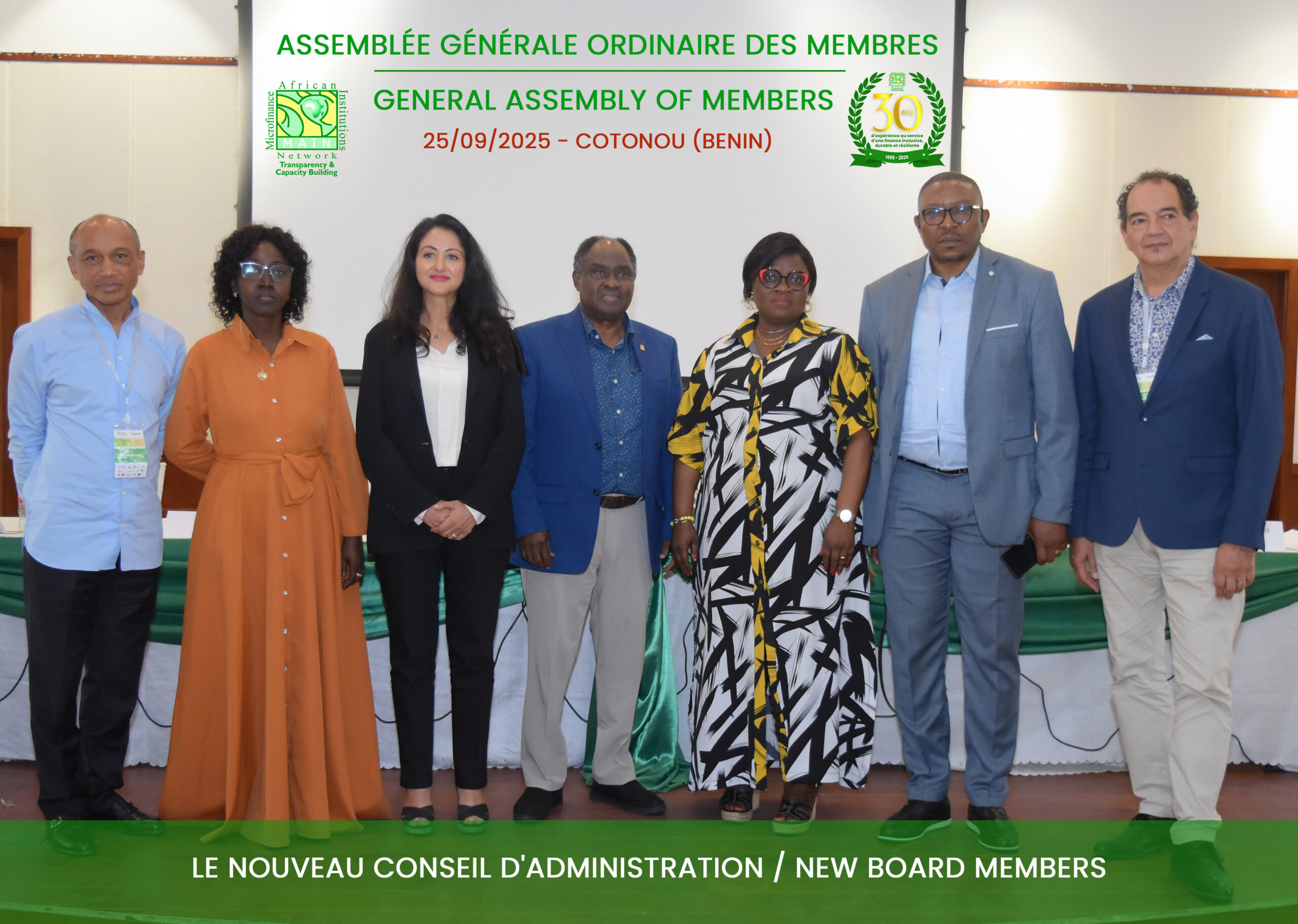
In a friendly atmosphere marked with emotion and acquaintance, the outgoing President thanked the members for their trust and commitment, before handing over to the new chair. In his speech, Mr. Kimanthi MUTUA expressed his deep gratitude and promised to continue the work already begun, while bringing a new dynamic focused on innovation, sustainability, and pan-African cooperation. He reaffirmed MAIN’s commitment to remaining a leading player and catalyst for financial inclusion on the continent.
The session ended at 4:45 p.m. in a spirit of unity and enthusiasm, marking the end of an exceptional week combining reflection, action, and celebration. Between the SeNaMif and the MAIN General Assembly, Cotonou served as the hub for inclusive African finance, demonstrating the vitality of a rapidly evolving sector and the shared determination to build a more inclusive, resilient, and prosperous Africa.
